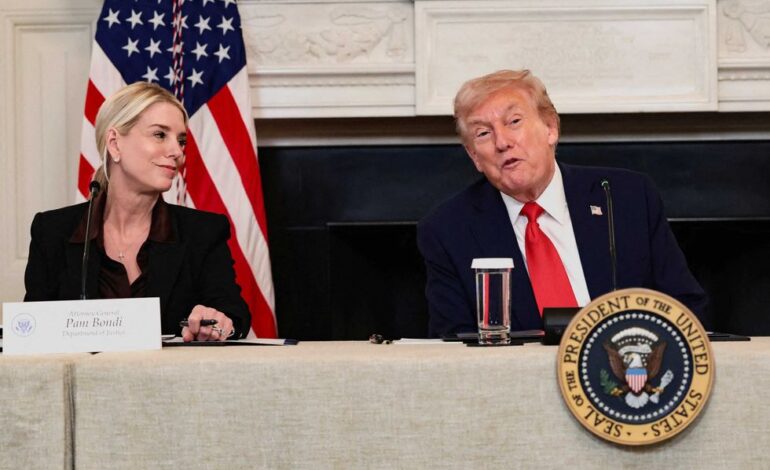Trump Declares “Antifa” a Domestic Terrorist Organization

Former President Donald Trump recently signed an Executive Order formally designating “antifa” as a domestic terrorist organization. In a bold statement, he promised to employ extensive federal resources against its members, organizers, and financial supporters, asserting that “antifa” represents a “militarist, anarchist enterprise” intent on overthrowing the U.S. government and law enforcement.
Following the Executive Order, Trump convened a roundtable discussion at the White House, primarily intended for a Fox News audience. The meeting featured several right-wing media figures, including Andy Ngo and Jack Posobiec, who actively support Trump’s narrative. During the session, Homeland Security Secretary Kristi Noem expressed gratitude to Trump for highlighting what she referred to as “terrorists,” suggesting that these individuals pose a direct threat to law enforcement, journalists, and the public.
The rhetoric continued to escalate as FBI Director Kash Patel committed to dismantling what he termed a network of “organized criminal thugs” that he classified as domestic terrorists. Notably, this alignment among Trump’s advisers and allies amplified the urgency of the claims against “antifa,” portraying it as a serious national threat.
Understanding “Antifa” as a Concept
Critics argue that Trump’s designation lacks factual basis. Numerous experts, including analysts from PBS and the Anti-Defamation League, emphasize that “antifa” is not an organized group but rather a decentralized ideology rooted in anti-fascist principles. There are no official memberships, leaders, or structured operations associated with “antifa.” The term has become a catch-all label for various groups and individuals who oppose fascism.
The historical context of anti-fascism reveals that many who fought during World War II, including countless soldiers and civilians, were aligned with the principles that inform the anti-fascist movement today. The atrocities committed under fascist regimes, particularly during the Holocaust, underscore the importance of opposing such ideologies.
The Political Implications of the “Antifa” Label
For Trump, the term “antifa” has increasingly come to symbolize political opposition. As Stephen Miller, a senior adviser to Trump, stated on Fox News, the Democratic Party is merely a “domestic extremist organization.” This framing suggests that anyone who challenges Trump politically may be categorized as part of a broader “antifa” threat.
The strategy appears to be designed to cultivate fear within the public. By portraying “antifa” as a violent force, Trump aims to justify aggressive federal responses, including the mobilization of armed forces in urban areas. During the roundtable, Noem articulated a comparison between “antifa” and notorious groups like MS-13 and ISIS, further inflating the perceived danger.
As the political landscape evolves, the implications of this rhetoric could lead to significant consequences for civil liberties and public discourse. The designation of “antifa” as a terrorist organization serves to rally Trump’s base while simultaneously stifling legitimate opposition.
This evolving narrative raises concerns about the potential for misuse of governmental power and the impact on peaceful protests. As this situation develops, it is critical for citizens and lawmakers alike to engage in informed discussions about the implications of such designations and their effects on democratic principles.






